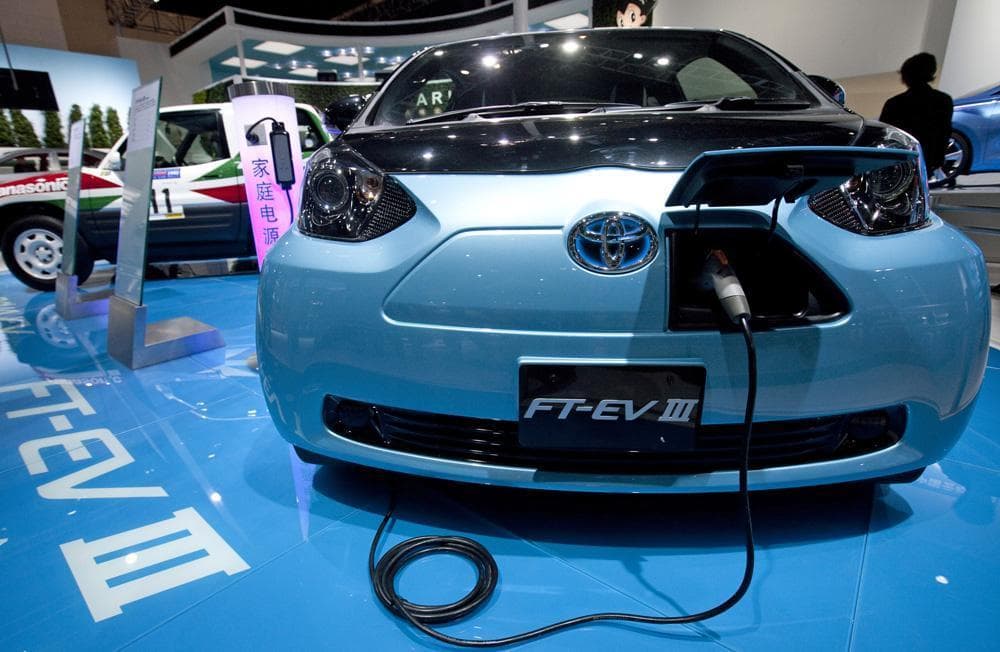Advertisement
Mass. Electric Vehicle Rebate Program Will End In September

The Baker administration plans to pull the plug this fall on a rebate program designed to spur electric vehicle sales in Massachusetts, drawing jeers from clean energy advocates.
With funding for the program running out, officials announced at a Zero Emission Vehicle Commission meeting Monday that the MOR-EV program will be extended for the last time to cover electric vehicle purchases made through Sept. 30, 2019.
Administration officials cited "accelerated demand" for the rebates, in connection with an uptick in electric vehicle sales, and said budget amendments that the administration supported to provide more funding for the five-year-old program failed during House and Senate deliberations in April and May.
Four environmental groups panned the decision, saying that gutting the rebate program amounted to a "huge lost opportunity" at a time when policymakers are trying to curtail carbon emissions from the transportation sector.
The electric vehicle market has matured, administration officials said, with more makes and models available, more comparable costs compared to traditional gas vehicles, and the commoditization of lithium ion batteries.
As sales picked up, the program's rebates over the last year totaled more than the previous four years combined, administration officials said, and rebate costs are outpacing funds available through a regional cap-and-trade program designed to reduce carbon emissions from power plants.
Under the program, more than 14,000 electric vehicle buyers since 2014 have received rebates totaling $30 million. An auto industry group, however, says Massachusetts has a long way to go to hit its sales targets.
According to the Association of Global Automakers, Massachusetts and seven other states in 2013 committed to accelerate the market for zero-emission vehicles (ZEV) with a memorandum of understanding calling for 3.3 million cumulative ZEV sales in the eight states by 2025.
The group says 9,007 zero-emission vehicles were sold in Massachusetts in 2018, up 175% over 2017. But Massachusetts is only 7.5% of the way toward its 2025 sales requirement of 300,000 ZEVs, the group said.
Environmental groups say new funding is needed for a program that provides rebates of up to $1,500 for the purchase or lease of battery and fuel-cell electric vehicles and up to $450 for zero-emission motorcycles.
Katie Gronendyke, a spokesperson for the Executive Office of Energy and Environmental Affairs, said the rebate program had "spurred the widespread adoption of electric vehicles in Massachusetts."